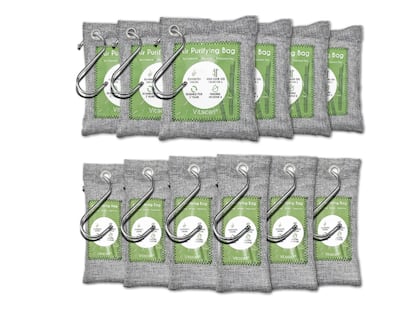Cable en el que se da cuenta de las dudas de Mal¨ª sobre c¨®mo Argelia controla su frontera
El embajador de EE UU en Mal¨ª, Terence McCulley, analiza en mayo de 2008 los esfuerzos de ese pa¨ªs en la lucha contra el terrorismo y el tr¨¢fico de drogas y examina la ayuda que Washington le podr¨ªa brindar
| ID: | 156121 |
| Date: | 2008-05-30 13:03:00 |
| Origin: | 08BAMAKO485 |
| Source: | Embassy Bamako |
| Classification: | SECRET |
| Dunno: | 08ALGIERS548 |
| Destination: | VZCZCXRO7155 RR RUEHPA DE RUEHBP #0485/01 1511303 ZNY SSSSS ZZH R 301303Z MAY 08 FM AMEMBASSY BAMAKO TO RUEHC/SECSTATE WASHDC 9183 INFO RUEHZK/ECOWAS COLLECTIVE RUEHAS/AMEMBASSY ALGIERS 0436 RUEHFR/AMEMBASSY PARIS 0433 RUEHRB/AMEMBASSY RABAT 0304 RUEHTU/AMEMBASSY TUNIS 0163 RUEKJCS/SECDEF WASHDC RUEAIIA/CIA WASHDC RHMFISS/COMSOCEUR VAIHINGEN GE RHMFISS/HQ USAFRICOM STUTTGART GE RHMFISS/HQ USEUCOM VAIHINGEN GE |
S E C R E T SECTION 01 OF 07 BAMAKO 000485 SIPDIS E.O. 12958: DECL: 05/30/2018 TAGS: PTER, PREL, ML, AG SUBJECT: WORKING WITH THE MALIANS ON SAHEL SECURITY REF: ALGIERS 00548 Classified By: Ambassador Terence P. McCulley for reasons 1.4 (b) and (d) 1.(S) Summary: This cable analyzes Mali's approach to security in the Sahel in advance of the interagency mission to Algiers. Mali is a committed ally in the war on terror, but its position as one of the poorest nations in the world limits its capacity to counter the presence of AQIM in the country's far north. Moreover, the mantra of Mali's leadership is that AQIM is an Algerian problem, and that the incipient Tuareg rebellion in the north presents a greater threat to Mali's stability and sovereignty than the terrorist presence. Since the GSPC re-branded itself as al Qaeda, we have made headway in sensitizing President Amadou Toumani Toure (ATT) to the danger posed by AQIM to both Mali and western interests in the region, but work remains in this regard. Trans-Sahara Counter Terrorism Partnership (TSCTP) programming in Mali reflects these generally congruent, but at times conflicting, realities by balancing targeted military assistance with a broad range of development, humanitarian and public diplomacy initiatives designed to reinforce the link between security and development. Since TSCTP's inception, Mali has regarded U.S. military assistance as a vehicle for addressing a variety of security concerns ranging from AQIM to bandits and narco-traffickers to Tuareg rebels. At the same time, ATT recognizes that his country's poverty and geographic position force him to consider the equities of powerful regional players. We do not believe that Libya is Mali's preferred dance partner on regional security issues, particularly on Tuareg questions, but Qaddafi's deep pockets mean that ATT cannot resist if the "frere guide" decides to engage (or meddle, depending on one's point of view). Algeria, however, remains for Mali its preferred diplomatic partner on trans-Saharan issues, and while ATT can be by turns bitter and frustrated with the Algerians, he recognizes Algiers holds the key to a peaceful resolution of Mali's Tuareg insurgency. We believe that President Toure is committed to a negotiated solution with the Tuaregs, but there are many internal political constraints that play into his handling of the crisis. For ATT, the Algiers Accords remain the central basis for negotiation with the insurgency, but application of aspects of the agreement -- particularly the so-called "special units" -- are politically delicate, but not impossible, to achieve. 2. (S) Summary continued: Mali remains a good partner on security issues, and it is not impossible to reconcile Mali's need for tranquillity in the north with what we understand to be Algeria's goals, in order to advance U.S. peace, security and counter-terrorism objectives in northern Mali. It is, however, important to act quickly, as the situation in the north is unraveling as we write. We hope the inter-agency mission to Algeria will reassure the Algerians that our military engagement with Mali is one part of a larger, holistic program, and that our mil-mil training programs are intended to build capacity to address the range of security threats in the north, and not to launch the Malian military in some quixotic anti-Tuareg campaign. It is important that the Algerians understand that the Tuareg insurgency here represents a threat to the security and stability of a democratic and moderate regional ally, and that the development we all seek for northern Mali is endangered by ongoing acts of rebellion and banditry. Moreover, the Malian military has a responsibility and an obligation to safeguard Mali's territorial integrity and protect civilian populations in the north (most of whom recognize that acts of rebellion impede development). As for Mali, we need to continue to engage with ATT in support of a peaceful resolution to the northern crisis, to encourage him to more effectively articulate his northern strategy (both to his northern compatriots and to his majority and increasingly resentful southern electorate), and to take the politically risky (but necessary) steps toward involving northerners in the security forces active in the northern zone. Key to this effort will be our continued support for decentralization in Mali which will answer the demand made by Northern populations for more autonomy and control of their resources and future. In the end, ATT needs to find a Malian solution to this internal (and interminable) problem, but he needs an assist from "Bouteflika the Malian", and the U.S. can play a helpful BAMAKO 00000485 002 OF 007 supporting role. Restoring the Algiers Accords process by bringing the rebellion in from its mountain redoubt in the Sahara will advance U.S. counter-terrorism goals by returning the focus to the threat of AQIM in the Trans-Sahara region and fostering conditions that help deny space to terrorists active in northern Mali. End Summary. ------------------------------------------ TSCTP in Mali: No Security, No Development ------------------------------------------ 3.(S) As one of the poorest nations in the world, Mali lacks the ability to effectively combat terrorism or counter terrorist influences. TSCTP programming in Mali takes this reality into account by dividing TSCTP actives into two categories: counter-terrorism and counter-extremism. Counter-terrorism programs cover the "hard" side of TSCTP, meaning direct military to military assistance. This assistance is designed to bolster Mali's ability to provide the level of security and stability, particularly in northern Mali, upon which development depends. The primary vehicles for this assistance are Joint Combined Exchange Training events (JCETs). JCETs are not designed to help the Malian military counter Tuareg insurgents. They are intended, rather, to boost selected Malian military units' capacity to control borders and respond to a broad range of security threats ranging from terrorist activity to drug smuggling and arms trafficking. Over the past year we have held successful JCETs in Bamako, Tessalit and Kidal, and Malian units that have participated in JCETs have shown a marked increase in professionalism and operational capacity. 4.(S) The "soft" side of TSCTP in Mali includes Department of Defense sponsored humanitarian assistance, USAID development programs and public diplomacy outreach. Our counter-extremism component of TSCTP is designed not only to encourage the traditional tolerant nature of Malian Islam but to also effectively address the critical interplay between development and security. This effort is particularly key in northern Mali where we are able to reach out to important northern communities in ways that demonstrate USG friendship and support. The DOD's humanitarian assistance and Civil Military Support Element (CMSE) play a crucial role in helping us meet this goal by building and rehabilitating wells, schools and health clinics throughout Mali. Medical and Veterinary Civic Action Programs (MEDCAP and VETCAP) that normally accompany JCETs are also extremely well received and enable local communities to derive benefits from military training that would otherwise not extend beyond the perimeter of military installations. 5.(U) USAID/Mali considers the northern region of Mali an important area and has undertaken activities there in a concerted effort since 1999. USAID/Mali implemented approximately $3.7 million worth of activities in the north during FY07, including support to 35 rural health centers, the construction and reinforcement of 17 community radio stations, the establishment of six community telecenters offering Internet access, the conduct of conflict-mitigation activities, support to rice and horticultural commodities, the expansion of access to financial services, the provision of scholarships and mentoring to 6,500 girls under the Ambassador's Girls Scholarship Fund, and the creation of teacher training and radio-based instruction for children of nomadic populations. USAID/Mali received an additional $9.5 million in TSCTP funds and the majority of these resources have been earmarked for activities in the North that aim to expand economic opportunities for youth, construct additional community radio stations, build capacity for local government, and support madersas throughout the country. On the Public Affairs side, we have used cultural preservation grants to help Mali honor its Islamic heritage by protecting thousands of ancient Islamic manuscripts in Djenne and Timbuktu and helping to preserve an ancient mosque in Gao. Additionally we recently celebrated the year anniversary of the only American Corner in Mali. Located in Gao, it has allowed us to quadruple our outreach to key contacts in the region and to further promote mutual understanding between Malians and Americans. ----------------------------------------- Malian View of the Situation in the North BAMAKO 00000485 003 OF 007 ----------------------------------------- 6.(S) Malians generally regarded the GSPC as an Algerian extremist group composed of Algerian Salafists dedicated to overthrowing the Algerian government. The GSPC was therefore seen as an Algerian problem that posed a risk not to Malians but to Algerians and the occasional western tourist naive enough to venture deep into the Sahara. The GSPC-AQ merger to form AQIM altered this perspective only slightly until the December 2007 murders of the French tourists in Mauritania and, to a lesser extent, the kidnapping of the Austrian hostages in Tunisia, brought the dangers of terrorism in the Sahel home to the Malian government. 7.(S) The brewing rebellion in northern Mali, however, has displaced all other security concerns. President Toure has made a concerted effort to handle the recent attacks by Tuareg rebels (and the resultant deaths and capture of Malian soldiers) through dialogue and restraint, but he is under increasing pressure from the military, which is composed predominantly of southern Malians, to respond with force and severity. President Toure faces the very difficult challenge of finding a way to sit down at a negotiating table with rebels who have killed Malian soldiers, stolen government arms, laid mines, disrupted badly-needed economic development and still hold perhaps as many as 90 Malian soldiers as "prisoners of war." President Toure's decision not to respond militarily to such aggressions are increasingly interpreted as signs of weakness by the media and the wider Malian public. His recent decision to circumvent the regular army by supporting ethnic Imghad Tuareg paramilitary groups against Ibrahim Bahanga and the Alliance for Democracy and Change (ADC) suggest President Toure's resolve for dialogue has begun to wear thin. 8.(S) Mali recognizes that Algeria is the only credible mediator for the Tuareg crisis. Yet President Toure is clearly frustrated with President Bouteflika and Algeria's off-again on-again mediation efforts. Algerian allegations, whether leveled by the Algerian press or through the diplomatic rumor mill, that Mali is somehow intransigent in the war on terror or willingly harboring terrorists have not passed unnoticed in Bamako. President Toure is also convinced that members of the Algerian security services in southern Algeria are actively facilitating Tuareg rebels and has told us on several occasions that he does not believe President Bouteflika controls, or is even aware, of what his security services are doing along the Mali-Algeria border. Malians also posit that, if Algeria is serious about combating AQIM, they should do so by controlling their own borders instead of relying on unreliable and self-interested Tuareg proxies. 9.(S) President Toure still respects President Bouteflika (who bore the sobriquet of "the Malian" during his sojourn in Gao at the time of the Algerian war for independence) and seems to give him the benefit of the doubt by assuming that his Algerian counterpart is unaware of what his own security services are up to. President Toure would prefer to see greater Algerian control of its borders and more Algerian resources aimed at AQIM operatives coming from North Africa than the arming of Malian Tuaregs who can easily turn such training and equipment against the central Malian government. ---------------------- What this Means to Us ---------------------- 10.(S) Deepening levels of impunity in northern Mali are rapidly reducing our ability to advance key peace and security goals. The only groups likely to benefit from a northern Mali free-for-all akin to the one that occurred during Mali's 1991-1996 rebellion are well-armed bandits and AQIM. The humanitarian and political impacts of a third rebellion in northern Mali will be enormous. Those who will suffer most are not the minority of Tuareg rebels who have taken up arms against the central government but the vast majority of ethnic Tuareg and Arab northern Malians who simply want to send their children to school and support teir families. We have already begun to curtail cetain USAID and DOD activities in the north due t a lack of security and our sensitivity to beingperceived as taking BAMAKO 00000485 004 OF 007 sides in the conflict underway between Tuareg bandits and the Malian military. 11.(S) The similarities between the start of the last northern rebellion in 1991 and today are sobering. In January 1991 Algeria brokered a peace agreement, the Tamanrasset Accords, between Mali and northern rebel groups led by Iyad ag Ghali that was never implemented. As security in the north deteriorated, an alphabet soup of armed rebel militias (the MFA, MFUA, FIAA, ARLA and FPLA among others) representing disparate ethnic groups and Tuareg fractions filled the void. A similar dynamic appears to be unfolding now with the appearance of competing Tuareg rebel and government sponsored militias and the 2006 Algiers Accords - also negotiated by Algeria and Iyad ag Ghali - teetering on the brink of collapse. 12.(S) In regards to our CT efforts in the region, we have made some progress in convincing President Toure of the need to zero in on AQIM by focusing on the changing nature of AQIM and the fact that Mali, like neighboring Mauritania, is not immune to AQIM attacks on its soil. We have also been more aggressive on the intel side in terms of information sharing. The Malians are significantly more open interlocutors now than a few years ago, even though President Toure still sees action against AQIM as counter to fundamental national interests due to the inherent risks of further stirring up trouble in the north. A third Tuareg rebellion will greatly diminish our ability to discuss counter-terrorism with the Malians and their willingness to listen. -------------------------- Saving the Algiers Accords -------------------------- 13.(S) The Algiers Accords remain the only, and best, way to prevent further unrest and provide an environment conducive to stopping AQIM activity in the Sahel. President Toure's commitment to a peaceful settlement to the ongoing rebellion and Algeria's recent agreement to resume its mediation represent two positive steps in getting the negotiations back on track. That said, domestic political constraints and opposition within the Malian military will pose significant roadblocks and further deepen President Toure's frustration of having to dedicate so much time, money and material resources to Mali's most sparsely populated region. Implementation will require more concessions and more diplomatic pressure, but we remain confident that progress can be mad if the potential road blocks can be overcome: -- The absence of a point person on either the Malian or Tuareg side. In July 2006 Minister of Territorial Administration, General Kafougouna Kone, negotiated the Algiers Accords on Mali's behalf. Alliance for Democracy and Change (ADC) leader Iyad ag Ghali and his deputy Ahmada ag Bibi represented the Tuareg rebels. Two years later, General Kone has faded from view and Iyad ag Ghali has moved to Saudi Arabia. President Toure could re-energize the peace process and significantly alter the dynamics of the current crisis by appointing a lead interlocutor. General Kone is the most obvious choice. Fifteen years of democratic success in Mali has, however, produced two other leaders - former President Alpha Oumar Konare and former Prime Minister and opposition leader Ibrahim Boubacar Keita - who were central figures during the second northern rebellion of the 1990s and could lend a needed sense of gravitas to peace negotiations. Nominating either Konare or Keita as his special envoy to the north would require a significant amount of political courage on President Toure's part given that his relations with both men are not the best. On the Tuareg side there is no one capable of replacing ag Ghali. While there are a number of well-respected Tuareg politicians, none of these have the ability to control, or even influence, current rebel leaders. -- Juxtaposed with the absence of Malian and Tuareg interlocutors is a multiplicity of mediators. President Toure apparently turned to Libya not to send a signal to Algiers but in hopes of securing the release of the military hostages still held by Bahanga. Re-introducing Libyan cash and influence to northern Mali was clearly ill-advised. Mali's request for Algeria to return as the key facilitator on this issue indicates President Toure's recognition that Algiers holds the key to a peaceful resolution of Mali's BAMAKO 00000485 005 OF 007 Tuareg insurgency. -- The reduction of Malian military's footprint in northern Mali during an ongoing period of hostilities. The signatories of the Algiers Accords pledged to facilitate a return to pre-2006 troop levels in northern Mali. This has subsequently been interpreted by some Tuareg rebels as a complete withdrawal of the Malian military from northern Mali. The Malians would like to reduce their troop numbers in northern Mali, both to respect the Accords and reduce costs, but this is ultimately a question of national sovereignty and one cannot reasonably expect the Malians to withdraw from a zone of instability. Rather than reducing troop levels in the north, Mali is in the process of augmenting its security presence, and will continue to do so as long as Tuaregs rebels continue to attack military bases and convoys and hold Malian soldiers hostage. -- The relocation of military bases. Both the 1991 Tamanrasset Accords and 1992 National Pact called for military bases located within urban areas to be relocated to less inhabited areas. Fifteen years later, Mali still lacks the financial resources to construct new military posts in order to fulfill this requirement. -- Economic development for the north. The Algiers Accords outline an extensive, yet vague, plan for the development of northern Mali. The only portion of this agenda so far implemented was the March 2007 Kidal Forum. The Forum was intended as a pledge-a-thon for northern Mali but served as an accounting of all the projects and initiatives for the north already undertaken by the Malian government and international donor community. Many of the specific development projects identified in the Algiers Accords - such as paving the road to Kidal, repairing the airports in Kidal and Tessalit, extending electrical grids and providing Kidal with access to national television and radio - are feasible yet well beyond the financial means of the Malian government or any single international donor. Banditry and Tuareg unrest further complicate any development efforts in the north as most foreign development partners are unable to work in such a hostile and unstable environment. -- The creation of special military units. This is the most important aspect of the Accords for Tuareg rebels and the one where Mali may have to make the most concessions. We have spent the last 18 months pushing for Mali to make these units operational and integrate them into security operations in the north. Were Mali to agree, we could likely incorporate the special units into our JCET program. President Toure and other Malian leaders maintain that Mali already created these units and that they were subsequently sabotaged by Tuareg desertions. There is some truth to this as the Malian government did make a substantial concession by agreeing to appoint Hassan Fagaga as the commander of the special unit in Kidal. On the other hand, there is some substance to the Tuareg argument that the units existed on paper only and never received equipment, vehicles, fuel or other required supplies. Explanations for continued Malian foot-dragging on this issue include: fierce opposition within the Malian military to the reintegration of Tuareg deserters responsible for attacking and killing fellow Malian soldiers; concern that Tuareg special unit members would simply turn the training and equipment provided to them against the regular army; suspicion that Algeria intends to use the special units to advance Algerian rather than Malian interests. There is also the unresolved question of the fate of chronic deserters like Bahanga and Fagaga. Minister of Internal Security, General Sadio Gassama, is vehemently opposed to the concept of special units. Since the units would fall under the Security Ministry's purview, this is a problem. In short, President Toure could stand up these units, but has hesitated due to internal political constraints. -- Outstanding questions on the April 10 execution of two Tuareg members of the ADC. In addition to demands for a military withdrawal from northern Mali and the creation of special units, Tuareg rebels are also demanding a credible murder inquiry into this event. We will probably never know who committed these killings or why. In October 2007 a Malian army unit arrested and executed a Tuareg gendarme within the confines of the military base in Gao. The soldiers responsible for the Gao murder are known to the BAMAKO 00000485 006 OF 007 Malian military, yet no legal proceedings are underway. Given this precedent, chances for a credible and transparent inquiry into the April 10 executions are grim. ---------------------------- Overcoming Mutual Suspicions ---------------------------- 14.(S) Encouraging Mali and Algeria to overcome the evident distrust that divides them will pose a serious challenge. On the Algerian side, we need to impress on Algeria the dangers of using Tuareg rebel groups as surrogates against AQIM as they did in 2006 by providing funds and fuel. By bankrolling the ADC, Algeria provided support to a group that had attacked a democratically elected government, circumvented the sovereignty of the Malian state by attempting to create a local militia, and further destabilized the north. Reftel's description of Algeria's understanding of the special units - Tuareg militias charged with eradicating AQIM - is significantly different from the Malian reading of the Algiers accords, which outlines a clear command structure with defined missions assigned by Malian military leadership. 15.(S) Algerian concern that the United States is arming the GOM to take on the Tuaregs is yet another indication of a misunderstanding between neighbors - although this tracks with statements made by Tuareg contacts. The nature of U.S. military assistance to Mali has been constant for several years and focuses on peace and security writ large. It is also worth noting that the Malians have, up to this point, launched only one operation against the Tuaregs and this operation relied not on U.S. training but Bulgarian attack helicopters and Ukrainian pilots. This offensive military operation was done in response to Bahanga's blockade of the vital, and only, road between Gao and Kidal. -------------------------- Conclusion: What We Can Do -------------------------- 16.(S) USG counter-terrorism and development efforts in Mali require a secure and stable northern region. Northern Mali's slide into unrest and rebellion will seriously affect our ability to advance key peace and security goals. We see the need to use our good offices in both countries to encourage deeper understanding and trust between the Algerians and the Malians at the same time that we encourage movement forward on the Algiers Accords. Because Malian, Algerian and American security interests are not incompatible, there are ways for the U.S. to work within the Algiers Accords framework without challenging Algeria's role as primary mediator. It is important that the Algerians understand that the Tuareg insurgency here represents a threat to the security and stability of a democratic and moderate regional ally, and that the development we all seek for northern Mali is endangered by ongoing acts of rebellion and banditry. Moreover, the Malian military has a responsibility and an obligation to safeguard Mali's territorial integrity and protect civilian populations in the north (most of whom recognize that acts of rebellion impede development). Although Mali's confidence in Algeria's ability to control Tuareg rebels is likely exaggerated, Algeria does have some leverage with Tuareg rebel leaders and we need Algeria to use this influence to, at the very least, secure a general cease-fire. Mali will only be able to consider its obligations regarding a return to pre-2006 troop levels in the north once the fighting has stopped and Bahanga and the ADC have released the prisoners they continue to hold. 17.(S) On the Malian side, we must convince President Toure of the need to stand up special units despite the inherent risks they pose to the Malian military. There are enough loyalist Tuareg and Arab soldiers within the Malian army to fill out one or two of these units and counter-balance any less trustworthy former Tuareg rebel elements that also must be included in the plan. If the Malians agree to stand up one or two of these units, we could incorporate them into JCET events. We are also pressuring President Toure to formulate a public relations strategy for the north in order to recapture the rhetorical battlefield from Ibrahim Bahanga and the like and to assure the populations in the North that the Malian government is actively finding ways to answer BAMAKO 00000485 007 OF 007 their developmental needs. We are also committed to continuing our active and wide-ranging USAID program in the North of Mali with a goal of helping Mali fulfill at least some of the development components of the Algiers Accords. Development in the North, including greater decentralization which would place more local autonomy and control over resources, is a critial component of responding to Bahanga's grievancs at the same time that we create a stable and mor secure environment that will be less hospitable o AQIM activity. MCCULLEY |
Traducci¨®n autom¨¢tica. Puede que el texto traducido no sea fiel al original
Tu suscripci¨®n se est¨¢ usando en otro dispositivo
?Quieres a?adir otro usuario a tu suscripci¨®n?
Si contin¨²as leyendo en este dispositivo, no se podr¨¢ leer en el otro.
FlechaTu suscripci¨®n se est¨¢ usando en otro dispositivo y solo puedes acceder a EL PA?S desde un dispositivo a la vez.
Si quieres compartir tu cuenta, cambia tu suscripci¨®n a la modalidad Premium, as¨ª podr¨¢s a?adir otro usuario. Cada uno acceder¨¢ con su propia cuenta de email, lo que os permitir¨¢ personalizar vuestra experiencia en EL PA?S.
?Tienes una suscripci¨®n de empresa? Accede aqu¨ª para contratar m¨¢s cuentas.
En el caso de no saber qui¨¦n est¨¢ usando tu cuenta, te recomendamos cambiar tu contrase?a aqu¨ª.
Si decides continuar compartiendo tu cuenta, este mensaje se mostrar¨¢ en tu dispositivo y en el de la otra persona que est¨¢ usando tu cuenta de forma indefinida, afectando a tu experiencia de lectura. Puedes consultar aqu¨ª los t¨¦rminos y condiciones de la suscripci¨®n digital.




























































